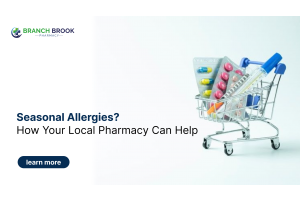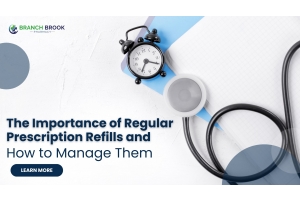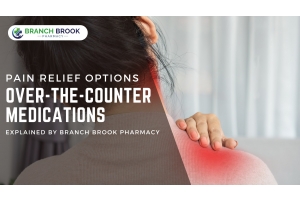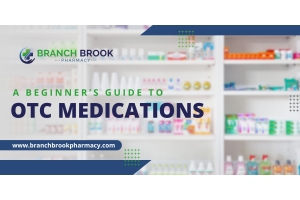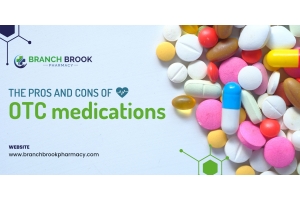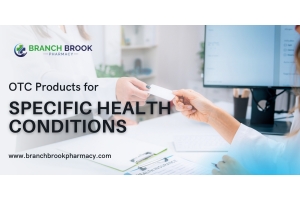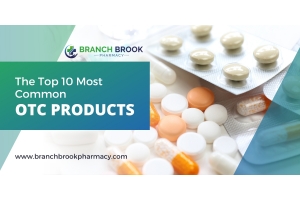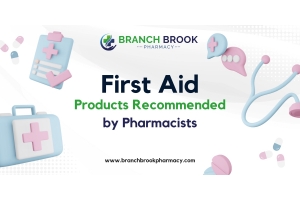Navigating the World of Online Pharmacies: Pros, Cons, and Safety Tips
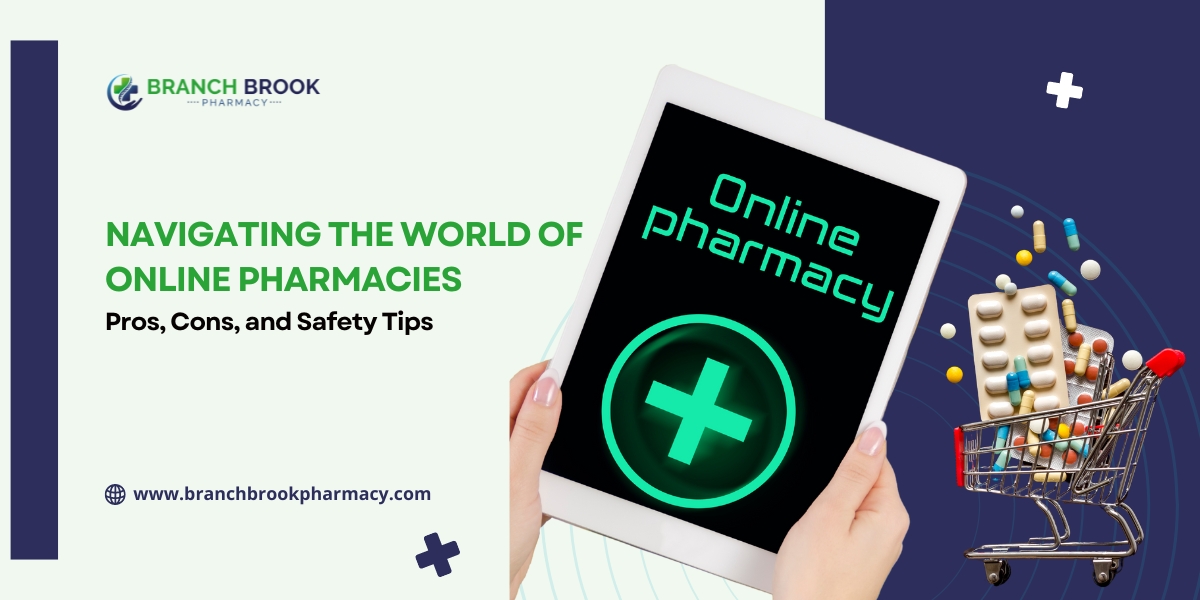
In 2024, the projected revenue in the Online Pharmacy market in the United States is expected to reach a staggering US$18.50bn. By 2028, this growth trajectory is expected to propel the market volume to a remarkable US$26.31bn. In today's digital age, the convenience of purchasing goods and services online has extended to pharmaceuticals. Online pharmacies offer a convenient way to access medications, but they also raise concerns about safety and legality. If you're considering using an online pharmacy, it's essential to understand the pros and cons, as well as some safety tips to ensure a positive experience.
Pros of Online Pharmacies
1. Convenience
One of the most significant advantages of online pharmacies is convenience. With just a few clicks, you can order your medications from the comfort of your home and have them delivered to your doorstep. This is particularly beneficial for individuals with mobility issues or those who live in remote areas.
2. Cost Savings
Online pharmacies often offer lower prices compared to brick-and-mortar stores. They have lower overhead costs, allowing them to pass on the savings to consumers. Additionally, many online pharmacies offer discounts, coupons, and generic alternatives, further reducing the cost of medications.
3. Privacy
Some people prefer the privacy that online pharmacies offer. Ordering medications online eliminates the need to interact with pharmacists or other customers in person, which can be particularly appealing for individuals who feel embarrassed about certain health conditions.
4. Access to Specialty Medications
Online pharmacies may provide access to medications that are not readily available at local pharmacies. This is especially beneficial for individuals with rare conditions or those who require specialty drugs that may not be stocked by traditional pharmacies.
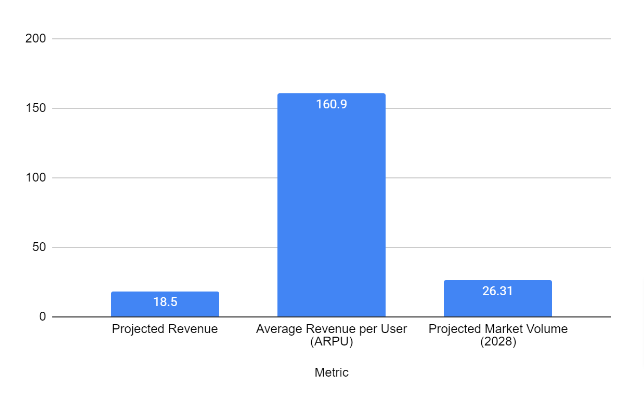
US Online Pharmacy Market Data (2024)
Cons of Online Pharmacies
1. Lack of Regulation
One of the biggest concerns with online pharmacies is the lack of regulation. Some online pharmacies operate illegally or sell counterfeit medications, putting consumers at risk. It can be challenging to verify the legitimacy of an online pharmacy, especially if it operates from another country.
2. Risk of Counterfeit or Substandard Medications
Because online pharmacies are not always subject to the same regulations as traditional pharmacies, there is a risk of receiving counterfeit or substandard medications. These medications may not contain the proper ingredients or dosages, leading to ineffective treatment or even harm.
3. Limited Interaction with Healthcare Providers
When you purchase medications online, you miss out on the opportunity for face-to-face interaction with healthcare providers. This can be problematic if you have questions about your medications or if you experience side effects that need immediate attention.
4. Delayed Delivery
While online pharmacies offer convenience, there is a risk of delayed delivery, especially if the pharmacy is located overseas. This can be problematic if you need your medication urgently or if there are issues with customs clearance.
Accessibility and Convenience:
Online Pharmacies:
- Accessibility: Online pharmacies offer easy access to medications from anywhere with an internet connection.
- Convenience: They provide the convenience of ordering medications at any time and having them delivered to your doorstep.
- Mobility: Particularly beneficial for individuals with mobility issues or those living in remote areas.
Traditional Pharmacies:
- Accessibility: Traditional pharmacies require physical presence at a brick-and-mortar location.
- Convenience: Involves traveling to the store during operating hours and waiting in line for prescriptions.
- In-person Interaction: Allows face-to-face interaction with pharmacists for immediate assistance or advice.
Regulation and Legitimacy:
Online Pharmacies:
- Regulation: Online pharmacies may operate under different regulations depending on the country or region.
- Legitimacy: Some online pharmacies operate illegally or sell counterfeit medications, posing risks to consumers.
- Verification: It can be challenging to verify the legitimacy of online pharmacies, especially those operating from abroad.
Traditional Pharmacies:
- Regulation: Traditional pharmacies are subject to strict regulations enforced by government agencies.
- Legitimacy: They are typically licensed and accredited, ensuring the quality and authenticity of medications.
- Verification: Legitimacy is easier to verify through physical presence and government-issued licenses.
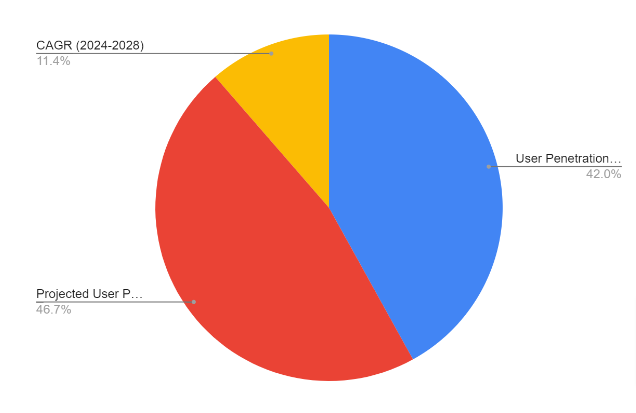
US Online Pharmacy Market Data (2024)
Interaction with Healthcare Providers:
Online Pharmacies:
- Limited Interaction: Purchasing medications online means limited interaction with healthcare providers.
- Consultations: Often lack face-to-face consultations, making it challenging to address concerns or ask questions.
- Prescription Verification: Online pharmacies may require prescriptions but may not offer direct consultation with healthcare professionals.
Traditional Pharmacies:
- Face-to-face Interaction: Traditional pharmacies provide opportunities for direct interaction with pharmacists.
- Consultations: Pharmacists can offer guidance, answer questions, and provide information about medications.
- Prescription Verification: Pharmacists verify prescriptions and may offer advice or alternatives based on individual needs.
Comparison of Online Pharmacy Features:
| Feature | Description | Importance |
| Licensing and Accreditation: | Verifies the pharmacy operates legally and meets regulatory standards. | Crucial for ensuring medication safety and legitimacy. |
| Prescription Verification: | Requires valid prescriptions from licensed healthcare providers. | Protects against counterfeit medications and improper use. |
| Payment Methods: | Offers secure and convenient payment options (credit cards, debit cards, e-wallets). | Ensures a smooth and reliable checkout process. |
| Shipping Options: | Provides various shipping speeds and costs to meet individual needs. | Allows users to choose between speedy delivery or cost-efficiency. |
| Customer Support: | Offers readily available assistance through phone, email, or online chat. | Provides a platform to address concerns and questions promptly. |
| Reviews and Ratings: | Allows customers to share experiences and assess pharmacy reliability. | Helps users make informed decisions based on real user feedback. |
| Privacy Policy: | Clearly outlines how user information is collected, used, and protected. | Ensures patient privacy and data security. |
Safety Tips for Using Online Pharmacies
1. Verify the Legitimacy of the Pharmacy
Before making a purchase, ensure that the online pharmacy is licensed and accredited. Look for seals of approval from regulatory bodies such as the FDA or NABP.
2. Consult Your Healthcare Provider
Always consult your healthcare provider before purchasing medications online. They can provide guidance on whether a particular online pharmacy is reputable and whether the medication is suitable for you.
3. Beware of Red Flags
Be cautious of online pharmacies that do not require a prescription or that offer significantly discounted prices. These could be signs of illegitimate operations.
4. Check for Secure Payment Options
Ensure that the online pharmacy offers secure payment options to protect your personal and financial information.
5. Monitor Your Medications
After receiving your medications, inspect them carefully to ensure they match the description provided by the online pharmacy. If you notice any discrepancies or suspect that the medication is counterfeit, contact the pharmacy immediately.
Potential Risks of Online Pharmacies:
| Risk | Description | Mitigation Strategies |
| Counterfeit Medications: | Fake medications with potentially harmful ingredients. | Use licensed pharmacies with verification processes. |
| Data Breaches: | User information leaks, potentially leading to identity theft. | Use pharmacies with robust security measures and privacy policies. |
| Improper Storage or Handling: | Medication degradation due to inadequate storage during shipping. | Choose pharmacies with clear information about storage and handling practices. |
| Limited Consultation: | Lack of face-to-face interaction with a pharmacist for guidance. | Utilize online pharmacies that offer consultation options with pharmacists. |
Also Read: Building Bridges, Not Breaches: How Pharmacists Can Foster Trust in the Age of Cyber Threats
Conclusion
Online pharmacies offer convenience and cost savings, but they also come with risks. By understanding the pros and cons and following safety tips, you can navigate the world of online pharmacies safely and responsibly.
Engaging FAQs
1. Are online pharmacies legal?
Online pharmacies can be legal if they operate within the regulatory framework of their respective countries. However, some online pharmacies may operate illegally, so it's essential to verify their legitimacy.
2. Can I get prescription medications from online pharmacies?
Yes, many online pharmacies dispense prescription medications. However, you will typically need to provide a valid prescription from a healthcare provider.
3. How can I verify the legitimacy of an online pharmacy?
Look for seals of approval from regulatory bodies such as the FDA or NABP. You can also check online reviews and forums for feedback from other customers.
4. Are generic medications from online pharmacies safe?
Generic medications from reputable online pharmacies are generally safe and undergo rigorous testing to ensure they meet the same standards as brand-name medications.
5. How long does it take to receive medications from an online pharmacy?
The delivery time can vary depending on the location of the online pharmacy and shipping method. Some online pharmacies offer expedited shipping options for faster delivery.
» » Reach out to us for any query: Contact us

